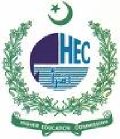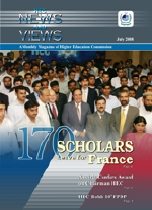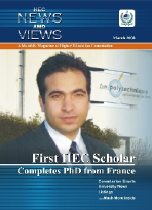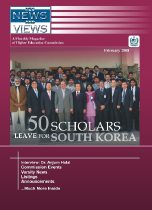Dr. Athar Osama
 Over the last several years of the current government, the Higher Education Commission (HEC) has funded thousands of scholarships and fellowships for Pakistanis to do PhD and Post-Doctoral work both at home and abroad. One of the most important of these programs has been the Foreign PhD Fellowships Scheme that funds as many as 1000 PhD fellowships per year for Pakistani students to go to countries around the world – mostly in Eastern Europe and South East Asia – to do their doctoral studies and return back after a specified duration of time to serve in Pakistani institutions.
Over the last several years of the current government, the Higher Education Commission (HEC) has funded thousands of scholarships and fellowships for Pakistanis to do PhD and Post-Doctoral work both at home and abroad. One of the most important of these programs has been the Foreign PhD Fellowships Scheme that funds as many as 1000 PhD fellowships per year for Pakistani students to go to countries around the world – mostly in Eastern Europe and South East Asia – to do their doctoral studies and return back after a specified duration of time to serve in Pakistani institutions.
Now that the first cohorts of these HEC scholars are completing their studies, the question arises: Will they return to Pakistan? And if they do, will they stay?
The terms of the program, I am told, are designed in a manner so as to dissuade these students from staying abroad after finishing their studies. This is done through a number mechanisms, including, provisions that discourage foreign employers and universities from hiring these students, and sending them to countries that are deemed not-so-hospitable to immigrant workers because of language barriers or immigration restrictions. Other initiatives to attract and absorb this talent back home include the ambitious plan of making several “world class” universities with international collaboration in Pakistan. Much has been said, and will continue to be said, about the latter and its fate continues to be in question.
While one would hope that these mechanisms put in place by HEC have been carefully thought out not only from the perspective of the country but also from that of the scholars, the other side of this coin, namely, the reception and environment these students receive when they actually return back to Pakistan has received much less attention but is equally, if not more, important for it is not enough to make these people return to Pakistan but rather policies must be in place to properly utilize and retain them.
At Pakistan Research Support Network (or Research-Network) we carried out a brief survey of the perception of Pakistani researchers and research students about the country’s research and academic environment and their motivations to work abroad or in their home country. The survey was anonymous thus allowing respondents to freely express their views and thoughts on the subject.
The survey findings represent an ample amount of both good and not-so-good news for Pakistan and its research environment. It also highlights interesting tendencies and motivations among its respondents some which may have been anticipated, but never formally documented before. These may be divided into four categories.
First, with regards to the quality of research environment in Pakistan, scholars identified a number of deficiencies including lack of quality leadership at the university, institution, and department level (92% of respondents), shortage of quality manpower (73%), and lack of quality and professional managed institutions (69%). Clearly, while an overwhelming proportion of scholars thought that Pakistan’s research and academic environment was inadequate to utilize their talents, more than 85% actually believed that Pakistan’s research and academic environment was lacking but improving over time.
Second, we asked the scholars about the intentions and motivations for returning home and/or working abroad. We believe that these individuals are very motivated and are quite realistic in terms of their expectations of what the country will have to offer to them but perhaps a little unrealistic in their perception of whether they will be able to overcome the challenges likely to be put in their way. For example, while just over 15% thought that when they return to Pakistan they will have all the necessary ingredients to allow them to carry out their research, as many as 79% said that “while they will face several challenges, but they will overcome these”. About 32% expressed serious doubts about the research and academic environment in Pakistan and noted that their decision to return will depend on whether they are able to address those concerns.
Of those surveyed, as many as 26% said that they will return back to the country because they have a “bond” with HEC or their employer to fulfill, another 34% said that while they do not have a bond with HEC or their employer, they will return back to Pakistan, nonetheless, and around 8% said that while they have a bond with HEC or their employer they are “rethinking” if they need to get out of it.
These data provide some very interesting–and heartening–results as well as opportunities for HEC or other competent agencies to devise policies to help these individuals make an informed decision. There is a vast majority of people who are willing to take on the challenge of returning back to Pakistan with a PhD in the hope that they will overcome the challenges involved. This population–young, idealistic, enterprising but also dedicated and passionate about their work–is especially vulnerable and HEC will do itself and the nation some good service to take extra care in transitioning them back into mainstream research in Pakistan.
Third, we asked the scholars about factors that demotivates them and that ultimately hamper their research productivity as a result. Several factors stood out. Freedom to work and micro-management by higher-ups (88% of scholars), access to equipment, knowledge, and data bases (75%), enough time to do research (72%), financial security (56%), and professional incentives (55%) are important consideration. The least important of all those asked–but still quite important–was financial incentives (chosen by 47%) of the scholars.
Again, evident from these responses is level of commitment and the degree of professional maturity of these scholars as are potential lessons for HEC bosses to understand and fully absorb for these are not the kind of qualities often associated with the tribal culture of Pakistani institutions where loyalty and conformance rather than freedom of expression, curiosity, and willingness to challenge intellectual authority are synomous with career progression.
Finally, there is ample room for both good news and source of concern for HEC. First of all, as many as 85% of the respondents thought that while Pakistani research and academic environment provided some challenges, it is also improving thus providing a reason for HEC to celebrate. A fairly substantial proportion of individuals are planning to return to the country which is yet another reason for HEC to be happy about. How HEC plays its cards in the coming years is likely to decide what percentage of these “likely return-ers” does it manage to convert into actual “return-ers”.
One issue of potential concern, however, is the notion or perception that HEC pays more attention to quantity rather than quality (shared by 70% of the scholars) is something that needs to be looked into and corrected for it is an often cited criticism of HEC’s policies. On the whole as well, I believe there is need for HEC to better explain its policies and programs for returning these individuals back, put it out in black and white so that people can make their future plans based on an explicit set of transparent policies rather than statements and comments that frequently appear in media.
There is also a need for a more transparent and open policy-making process at HEC that would help alleviate some of the questions and concerns these individuals may have about their future in Pakistan. Finally, HEC must develop a program to systematically evaluate the effect of its policies as well as communication strategy through independent evaluators to be able to better understand its own target market–researchers and academics inside and outside Pakistan–but also fine tune its own policies and programs. I think that if HEC could take a leaf from the findings of this survey and devise policies to help bridge some of the gaps identified above, it will finding a receptive and willing audience of young, educated, ambitious, and patriotic Pakistani researchers and scientists willing to return back and serve their homeland.
Dr. Athar Osama holds a PhD in Science and Innovation Policy and is the Founder of Pakistan Research Support Network and Muslim-Science.com






















































There is nothing wrong with the HEC scholars staying abroad after their PhDs if they payback the amount they owe to HEC as per the bond they sign with it.
Dear All,
I am very enthusiastic about the future of Pakistan. I appreciate the way H.E.C. is making efforts for the development of research culture in Pakistan. I know, Pakistan’s economy is wavering these days and basic necessities are not provided for all, in such a situation it will be quite unrealistic to say that I can see Pakistan becoming a Knowledge Based Economy. I believe, once high targets are set: scholarships and fellowships are given to scholars inland and abroad, they work in international universities, a research attitude is developed, people start thinking in innovative manners, scholars return back to Pakistan, we will change the fate of Pakistan. All we need is honesty and patriotism.
Love Pakistan and do something on your part for your Mother-Land. If we all do a little, we can do a lot! Hve faith in youself and in what you are doing*
Regards.
anyone who goes abroad on a government scholarship and doesn’t come back to serve the nation should be tarred and feathered.
Just to add, I think the tendency to get carried away focusing on grander things and ignoring more basic, common sense things is not just limited to education.
I think by and large, we tend to think this way. Just gather 10 Pakistanis in a room and make some humble suggestions on any issue. You can be sure that some idiot will come up with the ridiculous objection that your suggestion will not suddenly solve all problems. We somehow seem to think that unless an idea is a magic wand that will serve as a panacea for all problems, it is not worthy of our kind attention.
A similar tendency is also visible for instance, with regards to the restoration of the judiciary. Some proponents of restoration have unrealistic expectations from a restored judiciary. And on the other side, there are opponents of restoration making the most stupid remark that it will not bring prices down or some other such nonsense, implying that unless something will suddenly bring prices down, it should not be supported.
All universities are not the same and thus have different purposes. Stanford and MIT prepare students to target a specific market, which is quite smaller in number but higher in value, even though if they were plucked out of the USA it might not make much difference to their economy.
Then there are other first-tier, second tier and what not universities with community colleges filling the gaps. All these different universities are targeting different market segments preparing students to enter those market segments with skills enough to make a mark.
The same is also true for Pakistan. Not every organization or company needs a graduate from LUMS because so many skills they require may not be imparted by LUMS. Institutions like LUMS cater to a specific market, preparing students basically to pursue higher studies abroad. Our defence organizations, which perhaps do the greatest amount of science, don’t normally go after these students, because their expectations are high and these organizations can’t meet those.
On the other end of the spectrum, I have seen graduates from Al-Khair occupying a lot of jobs in different organizations at different levels. Initially they have the problem of recognition but gradually using whatever they have learned at the uni and having on-job training, they start progressing in their organizations.
For the progress of the country, both these kind of institutions are required, since every economy has many segments, some advanced and some at the basic level, and you need good qualified people to take these jobs. LUMS and its like can target the higher end, and Al-Khair and its like the lower end.